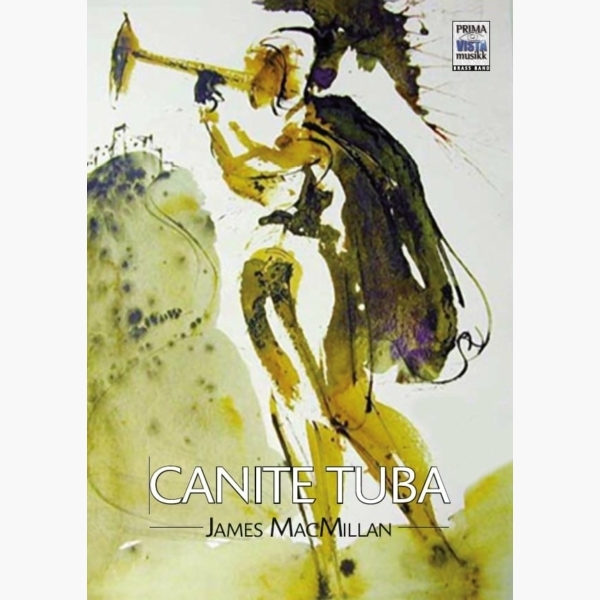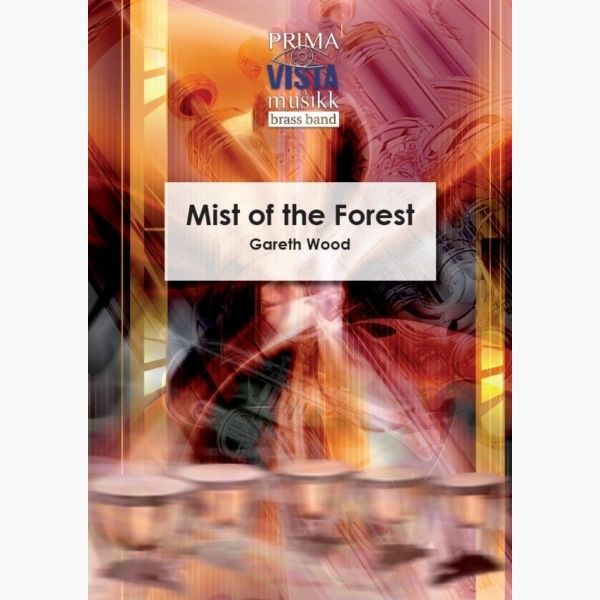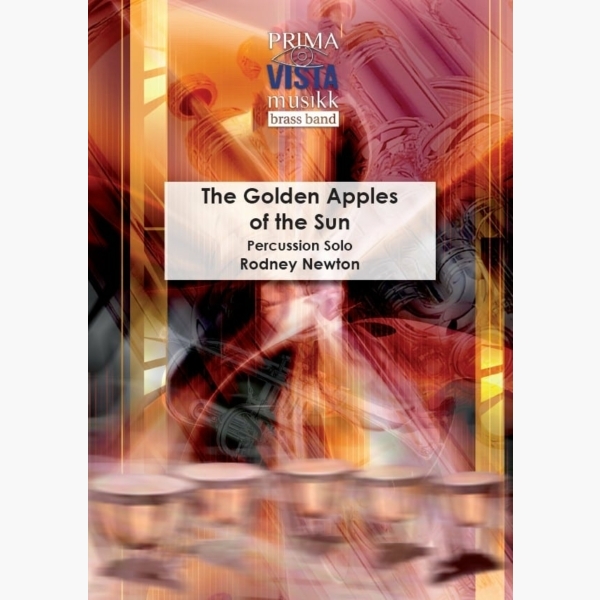Results
-
£73.00
Stealing Apples - Fats Waller - Reid Gilje
"Stealing Apples" is an old swing-tune written by Fats Waller. Performances by Benny Goodman and his big band made the song very popular.In this arrangement for brass band, the mallet percussion is very essential. Mallet Percussion presents the melody from letter A and is also featured as soli-instruments from letter L to P. These parts can alternatively be played as vibraphone solo.Please be aware of the balance at letter A. Horn and Trombones must play piano but well articulated. Letter D must sound sparkling and fresh with articulated and powerful trombones and cornets (using straight-mute).Make shue that the 8th-notes are not played too dotted two bars before letter G. Almost even 8th-notes accentuated on the start of the slur is a good tip.Watch the balance at letter H. This part have to sound homogeniously.The soloistic Soprano Cornet at letter Q must be played in the style of Benny Goodan. The accompaniment must not be too powerful from letter R to S. Best of luck with the performance!
Estimated dispatch 7-14 working days
-
£72.00
Dalstroka innafor - Tone Hulbaekmo - Elisabeth Vannebo
An old weather forecast on the Norwegian radio inspired Tone Hulbaekmo to write this song.Folk musician and composer Tone Hulbaekmo comes from Tolga, a small place in Norway. She have toured worldwide and many of her CD-released have received great acclaim both from the audiences and critics. Some of them have also won "Spellemannsprisen", the Norwegian equivalent to the Grammy award.Valleys Beyond is a Norwegian folk music style named "reinlender". It has to be played with a light swinging feel.
Estimated dispatch 7-14 working days
-
£79.00
Luftforsvarets jubileumsmarsj - Frode Thingnaes
Frode Thingnaes was one of the "Grand Old Men" of the Norwegian Military Bands. This march was commissioned by the Norwegian Air Force to it's 50 years anniversary in 1994.There was a wish tht the march should give associations to Glenn Miller, a wish that Thingnaes put into the trio part of the march in the most elegant manner.
Estimated dispatch 7-14 working days
-
 £22.95
£22.95Mo Ghile Mear - 'My Gallant Darling' - Richard Rock
This is an old Irish love song, written by Sean Clarach Mac Domhnaill in the 18th Century. Composed in the convention of Aisling poetry, it is a lament by Eire for Bonnie Prince Charlie, who was then in exile.
Titles No Longer Available
-
£35.00
The Pohutukawa Stands - Peter Meechan
The earthquake that hit Christchurch in February 2011 took the lives of 181 people. Being asked to write this work in their memory was an honour, but I didnat want it to simply be performed as a memorial. I wanted to compose a work that conveyed the sadness and grief for those lost - a work of remembrance - but also a piece of music that represented peace, hope and strength.The title and dedication come direct from the commissioners of the work, Woolston Brass Band. The Pohutukawa Trees stay standing and secure, defiant of the earthquake, in Christchurchas aGarden Citya, and the Pohutukawa tree also has special significance beyond their physical appearance.According to Maori mythology, the spirits of the dead travel to Cape Reinga on their journey to the afterlife to leap off the headland and climb the roots of the 800 year old Pohutukawa tree and descend to the underworld to return to their traditional homeland of Hawaiiki-a-nui, using the Te Ara Wairua, the 'Spirits' pathway'.The Pohutukawa Stands is dedicated to the lives lost in the Christchurch earthquake.
Estimated dispatch 12-14 working days
-
 £44.95
£44.95Tale of the Dragon - Paul Lovatt-Cooper
Tale of the Dragon was commissioned by the Senshu University Tamana High School Band in Japan to celebrate their 50th Anniversary. Composed as a dramatic finale Tale of the Dragon is a piece of programmatic music that tells an old Japanese legend of adventure and bravery...
Estimated dispatch 5-7 working days
-
 £79.95
£79.95Canite Tuba - James MacMillan
Canite Tuba (Let the trumpet sound) is an Old Testament quote (Joel) and is a title usually associated with choral music. I have chosen it for my most substantial brass band work to date as it gives an indication of...
Estimated dispatch 5-7 working days
-
 £24.95
£24.95Mist of the Forest - Gareth Wood
The inspiration for this work is a part of South Wales where the composer spent his childhood. The AfanForest Park is an old mining area that has been extensively reclaimed and transformed through one of the earliest reclamation schemes in...
Estimated dispatch 5-7 working days
-
 £44.95
£44.95The Golden Apples of the Sun - Rodney Newton
This work was commissioned in 2012 by the percussionist, Yasuaki Fukuhara, and takes its title from the final verse of W.B.Yeats' poem, The Song of Wandering Aengus; Though I am old with wandering, Through hollow lands and hilly lands, I...
Estimated dispatch 5-7 working days
-
£44.95
CALL OF THE RIGHTEOUS, The (Brass Band Set) - Leslie Condon
The classic Leslie Condon 'Tone Poem', originally written for Tottenham (now Enfield) Citadel Band in the mid 1960's. Based on the old gospel tune 'When the roll is called up yonder', this music became a blueprint of style copied by countless others since. Also featured on Celebration by Croydon Citadel Band.
Estimated dispatch 7-14 working days
